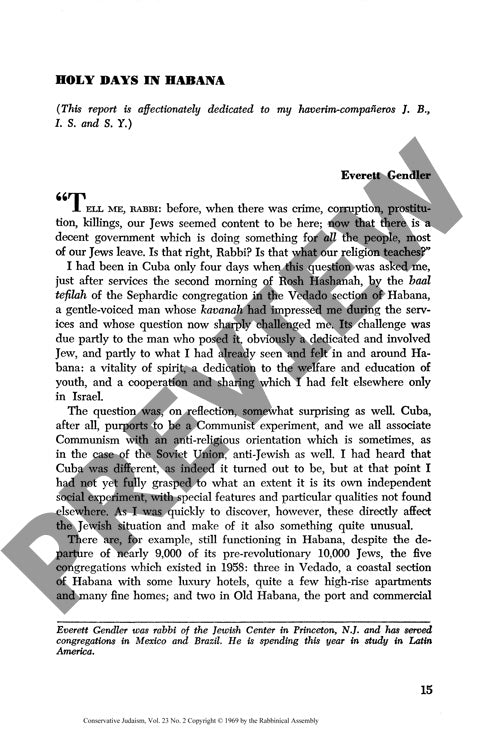Holy Days in Habana
Couldn't load pickup availability
This ethnographic study examines the condition of Jewish religious life in revolutionary Cuba through participant observation during the High Holy Days of 1968. The author conducted field research by visiting all five functioning synagogues in Havana and interviewing community members, religious leaders, and government officials. Despite the emigration of approximately 9,000 of Cuba's pre-revolutionary 10,000 Jews, the research reveals that religious institutions continue to operate with full governmental support and respect. The study documents the organizational structure and religious practices of each congregation, ranging from liberal Reform to Orthodox orientations, and examines community services including Jewish education, kosher food provision, and cemetery maintenance. Key findings indicate that the Cuban revolutionary government has demonstrated exceptional accommodation toward Jewish religious needs, providing special food rations for holidays, maintaining kosher slaughter services, and preserving Jewish educational programs within the nationalized school system. The research reveals a fundamental tension between economic motivations for emigration and religious-ethical considerations regarding social justice, as articulated by remaining community members who view Cuba's egalitarian experiment as consistent with Jewish values. The study concludes that while the community faces numerical decline and institutional challenges, a small core of dedicated Jews perceives the revolutionary period as embodying Jewish principles of social justice and human brotherhood, suggesting the need for continued dialogue between Cuban and American Jewish communities.

More Information
-
Physical Description
-
Publication Information
Published 1969
ISBN
-
Publication Credits
Everett Gendler

